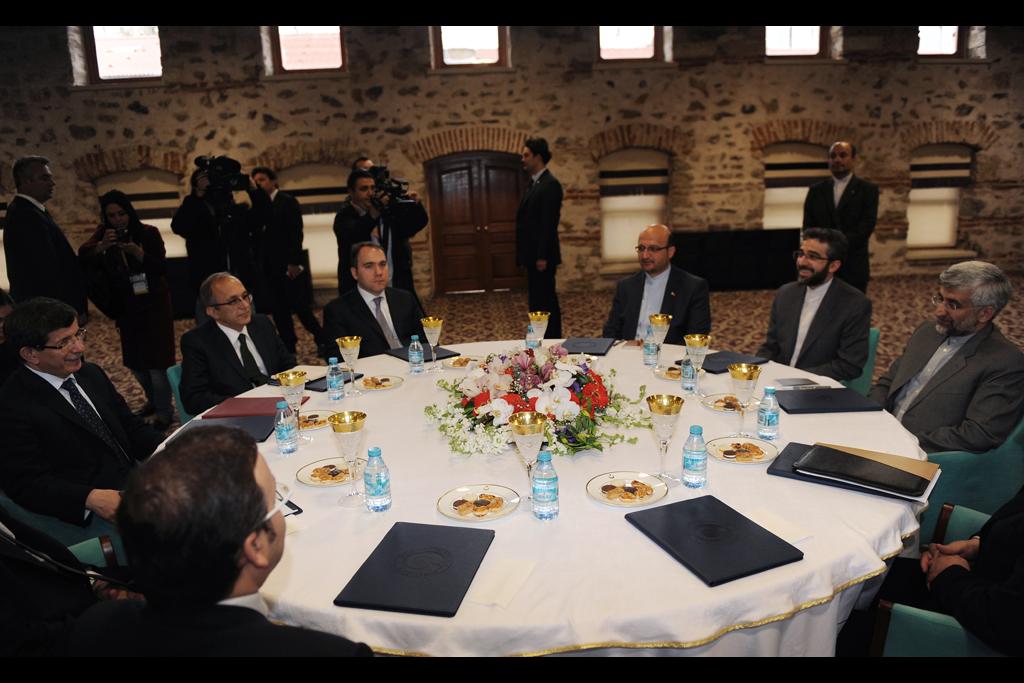Iran ships “off radar” as nuclear talks begin
Turkish Foreign Minister Ahmet Davutoglu sits with Iran’s top national security official Saeed Jalili before their meeting on April 13, 2012 on the eve of the resumption of talks between the European Union and Iran about its nuclear program. A new round of nuclear talks between Iran and representatives of the “Iran Six” nations will resume on April 14 in Istanbul after a 13-month hiatus.
Iran's negotiators arrived in Istanbul on Friday, where they will resume nuclear talks with six other countries this weekend in an effort to ease economic sanctions placed against their country, according to CNN.
Iran's top negotiator, Saeed Jalili, said he will bring "new initiatives" to the talks with delegates from the United States, France, Russia, China, Britain and Germany.
The last round of talks, held in January 2011, resulted in Jalili stating that Iran's nuclear program was not up for negotiation unless sanctions were first lifted, leading to the talks collapsing, said the Guardian.
More on GlobalPost: Iran: Reza Pahlavi pleads with Israel not to bomb his country over its nuclear program
Since then, the European Union announced an embargo on Iranian oil effective July 1 and the US aimed sanctions at financial institutions that aid the Iranian oil trade effective June 28. Though the measures have not yet been put in place, they have already profoundly impacted the Iranian economy, forcing the country to sell oil at a deep discount to the remaining buyers in Asia, after even Japan pledged to cut down its oil imports earlier this year.
US Secretary of State Hillary Clinton said on Thursday, "We want [Iran] to demonstrate clearly in the actions they propose that they have truly abandoned any nuclear weapons ambition," according to the Associated Press.
Iran has continued to insist that its nuclear program is not meant to create nuclear weapons but rather for medical and research purposes.
The Obama administration will plan to press for two specific demands, according to the BBC: closure of Iran's uranium enrichment facility at Fordow and the export of Iran's stockpile of medium-enriched uranium.
More on GlobalPost: Oil prices rise as Iran exports drop
Meanwhile, Reuters reported that Iran was concealing oil shipment destinations by disabling tracking systems on its oil tankers. The report suggested Tehran ordered captains of the National Iranian Tanker Co. to go "off radar" and switch off the transponders used by the shipping industry to monitor vessel movements, according to oil, trading and shipping sources.
A Reuters survey of the fleet showed only seven of the 25-strong fleet operating with on-board transponders. There is speculation that the secret sale of oil, mainly to India and China, may counter the impact that the EU embargo will have on Iran's economy.
More on GlobalPost: Should the EU give up on green energy?
Every day, reporters and producers at The World are hard at work bringing you human-centered news from across the globe. But we can’t do it without you. We need your support to ensure we can continue this work for another year.
Make a gift today, and you’ll help us unlock a matching gift of $67,000!
